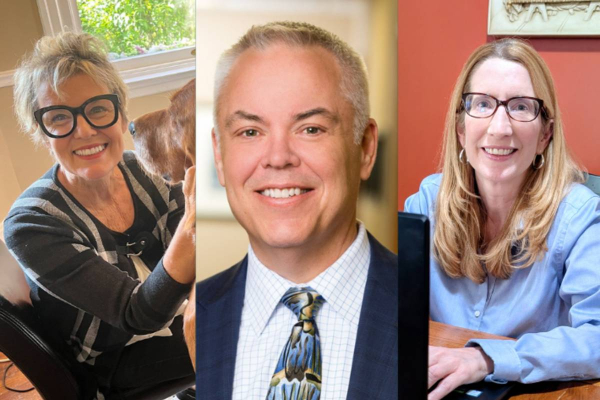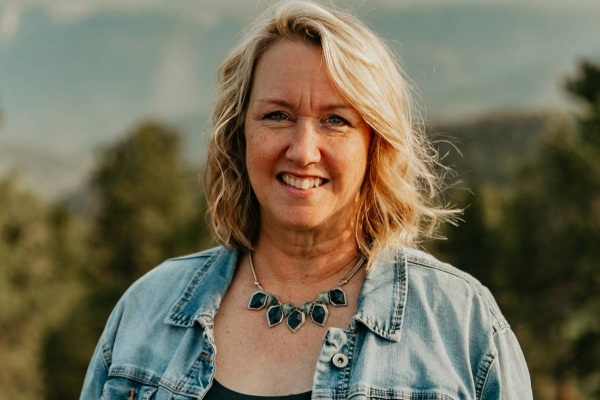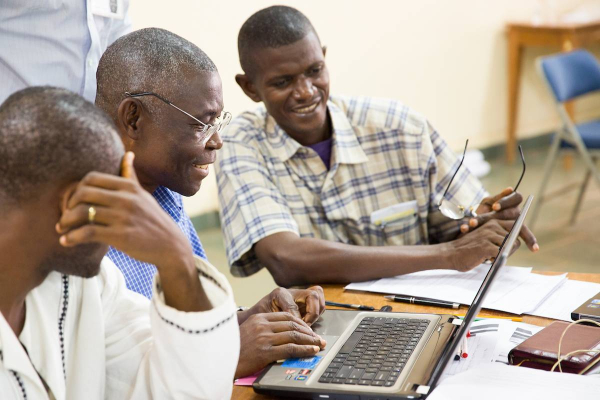Why Learning a New Language Is Hard But Still Worth It

Learning another language is hard. But it's worth it.
Learning another language allows you to learn to see the world in new ways, engage with people and cultures on deeper levels and communicate love and value in ways that speak to people's hearts.
David and Liz* are language acquisition coaches who are passionate about helping people learn new languages, especially in a missions context. Before joining Wycliffe Bible Translators, David was a high school Spanish teacher and an ESL teacher. Now in addition to teaching language learning, David and Liz serve in Scripture engagement in Latin America.
Read as the couple explores the challenges of language learning and why it is worth all the hard work.
Language learning takes different skills than you might have learned in school.
Think back to how you’ve learned languages in the past, whether living languages or ancient ones like Greek and Latin. Maybe you memorized verb conjugations or practiced phrases with your classmates. Some people likely found that method effective but others may have found it really challenging and discouraging (or even think they don’t have a talent for language learning).
In contrast to many classroom methods that focus on reading and writing, language learning in the real world is all about relating to and comprehending other people. Language learning is primarily oral and growing in understanding a community. Methods that focus on helping you become a good reader don’t necessarily give you techniques to learn the speed and ability to converse orally. And a talent for being able to read or write a language doesn’t necessarily have any bearing on whether you can learn to comprehend or speak a language.
“Everyone is capable of learning languages! … God created us as humans to learn languages. We just have to figure out how we can do that,” David said.
That’s why Wycliffe recommends a method to learning languages called the “growing participator approach” (GPA). The GPA focuses on helping people build relationships and grow in community with others. The process uses fun games and activities to help you develop your listening and speaking skills quickly so you can really participate appropriately where you serve.
Language learning requires commitment.
Unlike some skills, language learning is a lifelong process, and it’s easy to lose motivation especially in the early stages.
“That’s why I like using a method that plays games,” David laughed. “That helps people approach it with a more positive view.” Other people have found inspiration by setting weekly rewards or goals. One person even motivated himself by watching videos in his target language on YouTube!
But more importantly, David encourages you to find a language coach. “God made us to need other people to encourage us, help us see things differently and get advice. Whatever your difficulties are, the body of Christ is here to help,” David said.
Wycliffe has a whole team of language coaches dedicated to helping people build up their skills. By going through the language learning process, you’ll learn more than just a language; you’ll also grow in your walk with God. David observed that language learning is “a way to grow in patience and perseverance, which are things of the Lord. Who wants to deny the Lord [the opportunity] to grow fruit in us? Most of us say, ‘I want patience now!’ But patience is something we grow into and that the Lord works it in us.”
Language learning means letting go of perfectionism.
While starting to learn another language, you might feel incompetant, inadequate or even ashamed. Liz laughed as she recalled her own experience: “There [I am], listening to a 2-year-old talking with her mother better than [I can]!”
“But that just reveals another important quality that Christ wants in us: humility,” David said. “Language learning is a great way to face [humility] as Christians. [Learning a language] is hard. We’re going to feel foolish.”
It can be especially challenging for people who have been very successful in previous academic, work or social situations to suddenly start over from square one or to make the inevitable mistakes that come in language learning. It’s important for you to set realistic goals and not compare yourself to other people.
Everyone makes mistakes while learning languages too! “You don't have to be ashamed of them,” Liz said. “They're a way to break down barriers.”
David continued: “Our identity is not in our gifts or our tasks or the things we get done. “[Our identity is in being] children of God and being adopted by him, which is such a wonderful, merciful, gracious act.”
Language learning needs the right focus.
David and Liz have observed in their own lives that language learning and understanding a host community requires them to be totally dependent on God.
“It’s easy to hit a plateau,” Liz said, “but those plateaus bring you to your knees and you dig into the Word more. Then God gives you a renewed sense that you can do this. You just need to take a step back and … refocus [on] the Lord.”

Keeping that focus is key because language learning isn’t just about learning a new skill. It’s about helping people know they are valued and loved by God and others. Many minority people groups have been oppressed or even had their language and culture rejected by their own governments. “[By] learning their language, [building] relationships and understanding their culture, you are valuing them as people,” Liz said. “You can love them in ways that are culturally relevant.”
David agreed: “The purpose of language learning is to reach … people who have never really heard the gospel in [their language].” He concluded: “God created all these languages and he wants each and every one to be reached with the message of salvation.”
Watch this webinar to learn more about language learning with David and Liz Larson.






